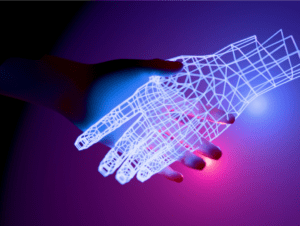 According to The 2017 Smart Decision Guide to Hotel Guest Experience Management, released last week by Starfleet Research and currently available for complimentary access, technology expenditures this year are largely focused on initiatives geared towards enhancing the guest experience.
According to The 2017 Smart Decision Guide to Hotel Guest Experience Management, released last week by Starfleet Research and currently available for complimentary access, technology expenditures this year are largely focused on initiatives geared towards enhancing the guest experience.
According to the research, overall hotel IT budgets, which were approximately 4 per cent of revenue last year for small and medium-sized properties and 6 per cent for large properties, are growing, with almost two-thirds (62 per cent) of hoteliers indicating that their IT budgets have increased by at least 25 per cent this year. These investments in technology solutions should ultimately translate into increased revenue and profitability.
What considerations should hoteliers keep in mind when researching technology solutions in the context of guest experience management (GEM)? The most important buying consideration may be, simply, the degree to which the hotel can automate the core functions that impact the quality of the guest experience, which, in reality, is practically all of them.
Streamlining guest interactions and transactions and improving daily efficiencies around other hotel operations, from housekeeping to property maintenance and facility management, should be the primary focus of any GEM initiative. Improving operational efficiencies generally translates into shorter wait times and fewer overall guest inconveniences.
Automation of many hotel operations falls squarely on the shoulders of the property management system (PMS). Other hospitality technologies that enable next-generation GEM capabilities include specialized department solutions and a service optimization solution.
Property management system
From enabling multiple guest-facing activities to capturing and storing guest data, the property management system plays a critical role in enabling guest experience management. The PMS serves as the technology backbone for everything from managing reservations and rates, checking guests in and out of the property and assigning rooms to handling billing requirements.
Hoteliers looking to upgrade their PMS capabilities should expect any system under consideration to, at a minimum, facilitate housekeeping assignment, control group room block allocations, automate room and tax posting and other night audit processing. They should also expect the PMS to capture and store guest preferences and transaction histories across all parts of the organization, including restaurants, spas and recreational facilities. This empowers the staff to present guests with personalized offers Ñ for example, at the golf courses they play or for the beverages they drink.
Because a PMS sits at the heart of day-to-day operations, the system should easily and seamlessly integrate with other technologies and data sources that are the lifeblood of the hotel. These range from door lock and encoding systems for assigning room keys to telephony and call center management software.
Other points of integration may include third-party travel sites where consumers book reservations online as well as custom booking engines. Ideally, a PMS would also integrate with sales and marketing campaign solutions, which may be managed through a CRM system, as well as guest loyalty management and rewards solutions.
Specialized department solutions
Specialized standalone solutions and PMS modules designed to manage specific hotel facilities and departments also play an instrumental role in influencing the guest experience. A restaurant POS system that tracks guest dining activity, including food and beverage preferences, can be said to fall into this category. Another example is a golf pro shop management module, which typically includes such features as tee time scheduling, profile/billing and tournament management. Utilizing this specialized solution, a hotel or resort can set up and maintain complete guest profiles and histories as they pertain to golf activities, including financials, handicaps and records of purchases.
Or consider a spa management module, which comes with features for tracking guest histories, medical conditions, transaction logs and preferences. Specialized systems for valet, maintenance and other departments may also be important, depending the property.
And what about the concierge? While Google Maps, Yelp and other mobile apps have decreased guest reliance on the concierge, today’s concierges still play a valuable role in enhancing the guest experience. They need tools to share their local knowledge and communicate with guests via in-app messaging and SMS. Concierge technology should integrate with other front and back of house solutions and include such features as request tracking, local vendor databases and inventory management tools for processing guest packages.
In all cases, specialized solutions and modules are key to ensuring personalized guest experiences across all parts of the property and, in many cases, across multiple properties.
Service optimization solution
Hotels have always sought to handle the deluge of guest requests a time-sensitive (generally, within a certain window) and satisfactory manner. The challenge today is that guests expect ever-faster responses and ever-better service quality. They also now expect a vast array of options for communicating their requests.
Hotels, in turn, need to meet these expectations. Moreover, operating in a hypercompetitive market, they need to track and measure service requests using ticket-tracking and other relevant metrics to drive continuous performance improvement.
These challenges speak to the need for a single, open API solution that manages guest requests across all channels and touch points in a comprehensive and systematic fashion. While it may be possible to integrate the existing PMS with standalone service point solutions, the system is not built to serve as a central clearinghouse and is poorly suited for that purpose.
What is needed is a dedicated solution for indexing, dispatching and tracking guest requests and ensuring that incidents are addressed efficiently and effectively across all departments. The solution needs to be centrally accessible and flexible enough to manage the workflow of any department. Mobility is key. The location of staff members on the go needs to be tracked and monitored for availability. Language translation may also be important. Every staff member should be able to access information about the guest, so they can interact with them in a way that not only resolves the problem but further enhances the guest experience.
The 2017 Smart Decision Guide to Hotel Guest Experience Management features the latest research findings, insights and recommendations for enhancing the quality of the guest experience and driving continuous performance improvement. The research is based on data collected from 183 qualified survey respondents. The content was independently produced, providing for unbiased, fact-based information. The underwriters of the new Smart Decision Guide are the following industry leaders: Agilysys, ALICE, Amadeus, Infor and Sabre Hospitality Solutions.
By Jeff Zabin
 Jeff Zabin is Research Director at Starfleet Research, which benchmarks best practices in hospitality technology. Recent titles include The 2016 Smart Decision Guide to Hotel Property Management Systems, The 2016 Smart Decision Guide to Hospitality Revenue Management and The 2016 Smart Decision Guide to Restaurant Management and POS Systems. A globally-recognized market research executive, Mr Zabin’s bestselling business books on data-driven marketing improvement have been translated into more than a dozen languages. He has also written hundreds of popular benchmark reports and articles in leading trade publications across multiple industry sectors, including hospitality.
Jeff Zabin is Research Director at Starfleet Research, which benchmarks best practices in hospitality technology. Recent titles include The 2016 Smart Decision Guide to Hotel Property Management Systems, The 2016 Smart Decision Guide to Hospitality Revenue Management and The 2016 Smart Decision Guide to Restaurant Management and POS Systems. A globally-recognized market research executive, Mr Zabin’s bestselling business books on data-driven marketing improvement have been translated into more than a dozen languages. He has also written hundreds of popular benchmark reports and articles in leading trade publications across multiple industry sectors, including hospitality.















